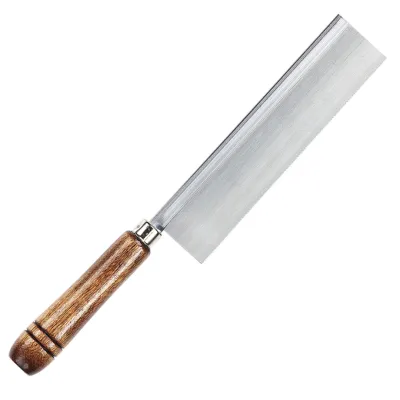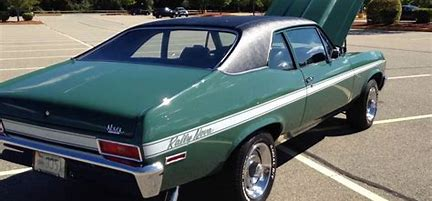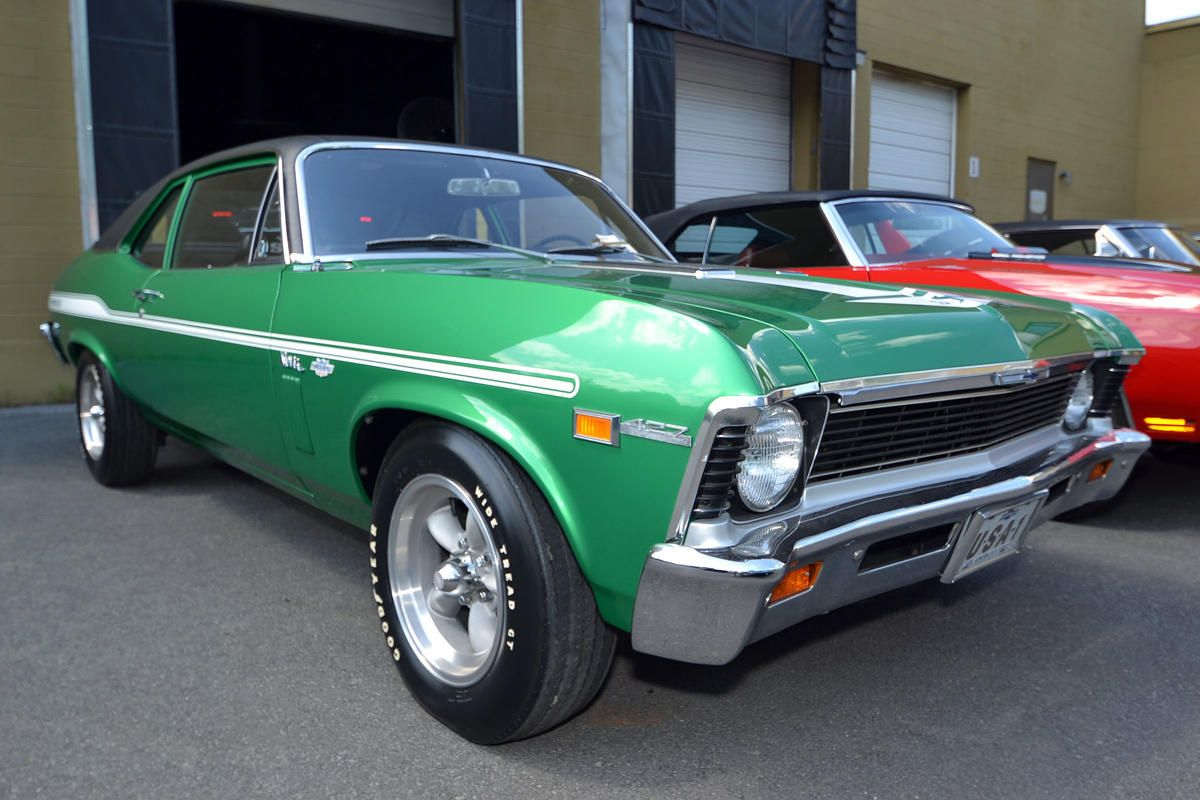
Muncie
Members-
Posts
1,215 -
Joined
-
Last visited
Content Type
Profiles
Forums
Events
Gallery
Everything posted by Muncie
-
Brings back a few time warp memories from when we had a track in town. Cool stuff, very nicely done. thank you for posting!
-
Why was the Supernatural 67 Impala 4 door kit discontued?
Muncie replied to GMP440's topic in Car Kit News & Reviews
In the pictures that I've seen of the kit seat and the car on the show... The front and back seats have different patterns. The front seat is also smaller than the stock seat. It looks like the front upholstery wore out and it was replaced a seat from something else instead of replacing the upholstery on the original seat frame. Not a big deal for TV/Movie cars. I think somebody casts a correct stock seat. -
Pro Comp was a class with supercharged alcohol (not nitro) funny cars, unblown nitro funny cars, blown alcohol dragsters and unblown nitro dragsters all competing for the same trophy. Most pf the blown alcohol funny cars looked almost like their blown nitro brothers but Veney's cars were a lot swoopier than almost anything on the drag strip. He pretty much dominated pro comp in the mid 1970's.
-
Why was the Supernatural 67 Impala 4 door kit discontued?
Muncie replied to GMP440's topic in Car Kit News & Reviews
I'm hoping there will be a future for this kit - with a stock front seat. (doesn't somebody make one?) I'll be patient. -
Atlantis Models has bought another lot of tooling/molds.....
Muncie replied to Dave Van's topic in Car Kit News & Reviews
I don't know if it has ever been officially attributed, it is probably a Kent Fuller chassis - Revell had connections with Tommy Ivo, Ivo had connections with Fuller... The Kent Fuller Story (motortrend.com) Folks Of Interest - RIP ... Kent Fuller | The H.A.M.B. (jalopyjournal.com) Fuel Dragsters - The Fuller Collection (wediditforlove.com) -
Dupli-Color Hi-Build Primer
Muncie replied to ewetwo's topic in General Automotive Talk (Trucks and Cars)
This one, Duplicolor 1699 Primer Sealer is a good barrier over plastic, and under lacquer. It dries smooth and does not obliterate detail. Needs enough coats to cover and prevent the topcoat from getting through. Primer Sealer – Duplicolor -
WHATS GOING ON HERE?
Muncie replied to CaddyDaddy's topic in General Automotive Talk (Trucks and Cars)
Looks like we started out with prices for new trucks... stumbled across a website last week for used trucks at U-Haul with very low prices on trucks less that are 2 years old and less than 15,000 miles. Very, very, very basic trucks with less than normal equipment and options but all that somebody would want/need on a truck for an afternoon to haul bark dust. Kind of puts a different perspective on pricing when it's thousands of trucks for a very specific purpose. -
Looking For A Special Glue
Muncie replied to oldcarfan's topic in Model Building Questions and Answers
Long ago, I recoated some hard flexible molded trim panels and seat upholstery made of different plastics with a paint made for upholstery - very little plastic knowledge so I don't know what plastics they were. The upholstery paint that I used seemed to get it's adhesion by "melting" into the top surface of the plastic. It actually softened the plastic until it dried. Probably not only to stick to the part but to be more durable little by getting the color into the plastic so it would not wear off so easily. Strange stuff, it probably would have turned kit plastic into a putty consistency. Like I say, just an idea and the SEM rattle can appeared easy to use. -
Looking For A Special Glue
Muncie replied to oldcarfan's topic in Model Building Questions and Answers
Just kicking out an idea here ... SEM makes an aerosol paint for upholstery vinyl and other flexible plastics. Not cheap, but not bad if it works. it's available at some auto detail supply or some auto paint supply shops. Probably should be confirmed by testing a sample for compatibility and to see if it will work. Color Coat™ Aerosols | SEM Products -
Looking For A Special Glue
Muncie replied to oldcarfan's topic in Model Building Questions and Answers
3M Plastic Emblem and Trim Adhesive. It's a tube glue, no mixing. I've seen it available at some auto parts stores, (maybe even Walmart?) but an auto body supply shop would definitely have it. It's like a high-performance contact cement. Buy the smallest size that you can get - It will stick the cap to the tube rendering the remaining glue in the tube hard to get. Reasonable price in the smaller tubes. It takes a couple of days to dry to full strength but seems to stick to anything. Strong enough for any abuse that I could give it. -
Hey Alan, what's the deal? have you gone roque on us... Monogram 1932 Fords instead of AMT? Next thing we know, you'll be building with the steering wheel on the LH side. Ok, well OK, these are really great - taking things back to their origins with cool and appropriate changes. The straight front axle on Son of Ford is a good improvement and really makes it look like it should. I like them! Good to see you back, Steve
-
That's really cool, great color and your painted trim gives it a cool look, love it!
-
WHATS GOING ON HERE?
Muncie replied to CaddyDaddy's topic in General Automotive Talk (Trucks and Cars)
Are we talking about things like electronic ignition? GM went to HEI in 1973 (a good thing in my book) I'm not sure parts stores even stock ignition points anymore... -
If they have good memories, hang 'em up in tne garage and keep them.
-
Ed "The Ace" McCulloch's Revellution FC car
Muncie replied to Goodtimes's topic in Model Building Questions and Answers
A few more bits of the history,,, The Revell kit represents the 1972 Duster which is one of the early dragster style funny car chassis - it was just after the Logghe style chassis in funny car history. The chassis in this car and the Revell kit is a bit wider (tires were smaller) and the chassis/wheelbase were shorter that what came later. The car was featured on the cover and four pages in the March 1972 Car Craft Magazine. I think Revell spent quite a bit of time with the real thing to develop the kit and in my mind it is very accurate for the 1972 car. Revell used that chassis for a long time on other funny cars - long after the real thing became obsolete (longer wheelbase and the chassis became narrower for larger rear slicks). The "English Leather" car is featured on three pages in the June 1975 Hot Rod Magazine. The chassis is longer with a 117" wheelbase, is narrower than the earlier car, and the engine location is farther out from the rear axle. The body was extensively modified by Northwest Racecars who also built the car. (NW Race Cars also did work for Twig Ziegler's Satellite - to my eyes, this car and Ziegler's Satellite are very similar.) There used to be a couple of resin bodies for this car. One had the correct wheelbase (which is too long to for the original Revell chassis) and the other was even longer to fit the later Monogram funny car chassis. Decals available that fit the body that came in the older Revell kit. You can get there, but it takes some work. -
Caterpillar 3406E 15.8L Custom Reman
Muncie replied to vincen47's topic in Model Trucks: Big Rigs and Heavy Equipment
Thank you for posting, I was remembering this one a couple of days ago. Awesome work! -
just the standard hobby shop jeweler saw. It's straight and long enough that it can smoothly follow the cut. Sometimes it works out with one cut. I've also used Trevor's method. Also works great on aluminum tubing. extra fingers out of the way. it cuts flesh easier than plastic.
-
Ford 34, a street hot rod who did not reach the finish line
Muncie replied to Ulf's topic in WIP: Model Cars
Love '34 Ford coupes with Chevy sixes. The slicker and more attitude, the better. Thank you for continuing the build and the posts - this thing is pretty darn cool! -
Interesting what you can find on the web... There are a lot of messed up and twisted colors on the internet. The paint chip chart looks off on several colors. The lighting and photography play lots of games. Metallics also shift many colors in different light. Hope this helps Pretty sure this is a Rally Nova in Fathom green. Rallye green is much brighter and smaller (or no) metallic.
-
Very clean and well built. Love it! Right colors, right wheels - over the last several decades, there have been a couple of 1956 210 Chevrolets on the street around here with that combination. Brings back memories of seeing them on the road. Way too cool.
-
I need some gas tank ideas
Muncie replied to junkyardjeff's topic in General Automotive Talk (Trucks and Cars)
maybe rectangular tanks... rectangular tanks will give you more fuel capacity in short rail space. maybe remove the cab step and use a fuel tank with a step under the cab... will give you more rail space to work with and better weight distribution for a truck tractor. . Try to maintain maximum ground clearance. it gets critical at the center of the wheelbase going into steep parking lot driveways. -
great subject, the model is spot on, (and yes, we sure did!)
-
Beating that Ol' Dead Horse - Color
Muncie replied to Lunajammer's topic in General Automotive Talk (Trucks and Cars)
We kind of tell them we want fewer colors in other ways by what we spend. More colors make every car cost more. This is much too simplified... Handling more colors mean more complications for production in the paint shop. More space, more people, more paint equipment, and some way to efficiently sequence cars with different colors thru the paint shop. it all costs money. It is simpler and less cost to manufacture more vehicles with fewer colors. While it is probably not going to create a price reduction to the customer to have fewer colors, lower cost can lessen the next price increase out the door and onto the dealer's lot. In the end, simplifying things with fewer colors keeps a manufacturer more price competitive. As I understand it, the paint shop is one of the larger expenses in producing vehicles. Beyond that, we know price is one of the factors that customers look at to choose a car. We still see some very low production colors on some models, but they are available at a very premium price.




